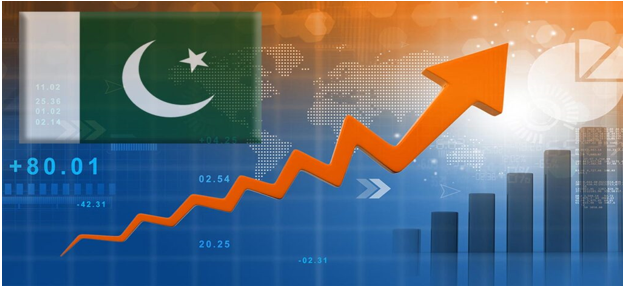INP-WealthPk
Ayesha Saba
While Pakistan’s economy has recently shown signs of stabilisation, marked by positive trends in remittances and exports, and considerable easing of inflation, deep-rooted structural reforms remain to be executed for achieving long-term stability.

Talking to WealthPK, Sajid Amin, Deputy Executive Director of the Sustainable Development Policy Institute (SDPI), said one of the key factors boosting economic confidence was the rise in remittances. “The latest trend has shown a steady increase, boosting the much-needed foreign exchange reserves. This inflow of funds helps cushion the economy from external shocks, particularly at a time when Pakistan’s import bill has put immense pressure on its balance of payments.” “Moreover, the country’s inflation rate, which has been a source of concern for both businesses and consumers for quite some time, has cooled down significantly. In October 2024, the inflation rate dropped to 7% year-on-year, a sharp decline from the double-digit inflation experienced earlier in the year,” he said.
Despite these positive indicators, Amin warned that Pakistan’s recovery remained vulnerable to external shocks and domestic challenges. “While declining oil prices would certainly alleviate some of the pressure on the economy, structural imbalances still need to be addressed. Pakistan’s dependence on imports, particularly for energy and raw material, means that any sharp reversal in global oil prices could undo the progress made at home.” The SDPI deputy executive director recommended that Pakistan needed to take proactive steps to maintain resilience. “The real challenge lies in translating these positive developments into sustainable economic growth. This includes improving fiscal discipline, diversifying the economy, and implementing structural reforms aimed at reducing the reliance on imports, particularly in the energy sector.”
“Without these measures, the economy remains at risk of reversing the gains achieved, especially when external conditions change. Maintaining long-term economic stability will depend on the government’s ability to address these deep-rooted challenges while capitalising on short-term improvements,” Amin observed. According to the Finance Ministry’s monthly economic outlook for October 2024, there has been a notable increase in remittances, exports, imports and foreign investment. The report also highlights a significant 92.1% reduction in the current account deficit. The report states that the inflation rate has dropped from 29% to 9.2%, although the production in major industries has decreased by 0.19% over the past two months. Remittances have increased by 38.8%, reaching $8.78 billion, while exports rose by 7.8% to $7.49 billion.
Credit: INP-WealthPk






